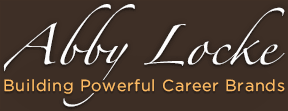
Resume best practices, no expiration date…
When it comes to resume writing and sharing strategies about how to create an effective one, I am always down.
It really is one of my favorite topics because there are “rules” and then there are “it depends”.
You get to follow tried-and-true tactics while applying modifications to fit your unique career and job situations.
To speak directly to the hiring managers and key decision makers, you want to make sure that your professional resume is customized and targeted for each opportunity.
However, there are still a few executive resume “rules” that never really expire, they evolve and can be modernized, but they never go away.
Remember that your executive resume is your strategic marketing tool.
No-one else can be you, you are the product and the resume is the tools that is selling your benefits, values and distinctive features to recruiters and employers. So here we go…
A. Know Your Target Position or Target Employer
Put the employer’s needs first when writing your executive resume or the document is useless.
Relevance is key! Only highlight experience, qualifications, education, training and projects that matters.
For example, if you are targeting senior-level marketing positions, then your entire executive resume should only speak to your expertise in that area. Cut out the extra, “that’s nice to know” information.
One resume can’t handle everything, one size fits-all does not work! Have more than one resume if you have various job targets.
B. Know Your Value Proposition & Put it Up Front
Your executive resume is going to be viewed through several multimedia devices – desktop, laptop, cell phone, iPad and more.
Have a compelling resume summary and professional profile at the top of the resume to capture the reader’s attention.
Think about what you can put in a couple of paragraphs that really stand out and set the expectations for a great resume.
Consider combining things like a title header, personal branding statement and powerful summary that speak your VALUE.
For example:
SENIOR MARKETING EXECUTIVE
Delivering Unprecedented Revenue & Market Performance for Companies in Highly Competitive, Evolving Industries
Learn how Abby can help with your executive resume
C. Know When to Add Another Resume Page
Okay, I am on a mission with this recommendation.
If you have 15+ years of progressive leadership experience and top achievements, you are NOT going to fit everything onto a one-page document.
A two-page resume (even three pages for C-level executives) is normal and acceptable even in this age of short attention span. Of course, you want to make sure that the content is relevant, recent, relatable and really powerful.
On the other hand, a one-page resume can be used for networking resumes or quick introductory bios.
Prioritize the content for your executive resume according to your target position to create a balanced document. If it doesn’t fit, leave it out.
Place emphasis on leadership roles and career achievements from the past 15 – 20 years and truncate any early roles.
If education, training and certifications are critical requirements for the job target, place them on the first page. For example, a project manager can list PMP certification next to his/her/their name.
Last, but not least, lose any emotional ties to part of your career experience. If it is not RELEVANT or ESSENTIAL to your career goals and job search and let it go.
Learn how Abby can help with your executive resume
D. Know That Your Career Achievements Always Count
Giving employers and recruiters a laundry list of your tasks and responsibilities doesn’t add value to your resume.
Provide a general overview and scope of your leadership role, give relevant details on annual revenues, budget size, number of employees and P&L oversight and more.
But save resume space for your career achievements and make sure to demonstrate and describe your contributions to a company’s growth and success.
While there is no magic number for the number of bullets you should use for each company, aim to list about 3 to 5 achievements for each position.
E. Know What Resume Formats You Need For Your Job Search
These days, it’s rare that you will need a paper resume as most recruiting and conversations will happen online and through electronic channels.
However, when it comes to marketing yourself, remember to promote yourself, both online and offline.
Develop your executive resume in Word and PDF and summarize key highlights of your background and career journey into a career biography and branded LinkedIn profile
The last takeaway I want you to remember is that the executive resume does not guarantee a job offer. You still have to get out there and do the work.



